How long can you run a gas fireplace before it needs to be refueled? What are some tips for keeping your gas fireplace running efficiently? Can you use a gas fireplace in an apartment? In this ultimate guide, we will answer all of your common questions about how long you can run a gas fireplace. We will also provide product reviews and useful tips to help you get the most out of your gas fireplace!
Vented vs. Ventless Gas Fireplace
When it comes to running a gas fireplace, the two main types are vented and ventless. Vented gas fireplaces require the use of an external flue or chimney to release emissions outdoors. Ventless fireplaces do not need this extra equipment as they utilize special filters and combustible components that allow them to burn more efficiently without releasing pollutants into the air. Generally speaking, vented gas fireplaces are safer and can run longer than ventless models as there is no risk of carbon monoxide buildup inside the home. However, ventless models are often more efficient and simpler to install since no additional installation is required for ventilation purposes.
How Long Can You Run a Ventless Gas Fireplace?
The answer to this question depends on several factors, such as the type of ventless gas fireplace, how well-ventilated your space is, and how long you’ve been running it. Generally speaking, however, most manufacturers recommend that users keep the total burn time for a ventless gas fireplace to no more than two hours in any single 24 hour period. That being said, many models allow users to operate them longer than two hours at a time if they’re properly vented and allowed to cool down between uses.
To get an accurate idea of how long your specific model can run in one session, be sure to check the manufacturer’s instructions included with your product. Additionally, when using a ventless gas fireplace, always make sure that the area is well-ventilated and observe all safety precautions. [1]
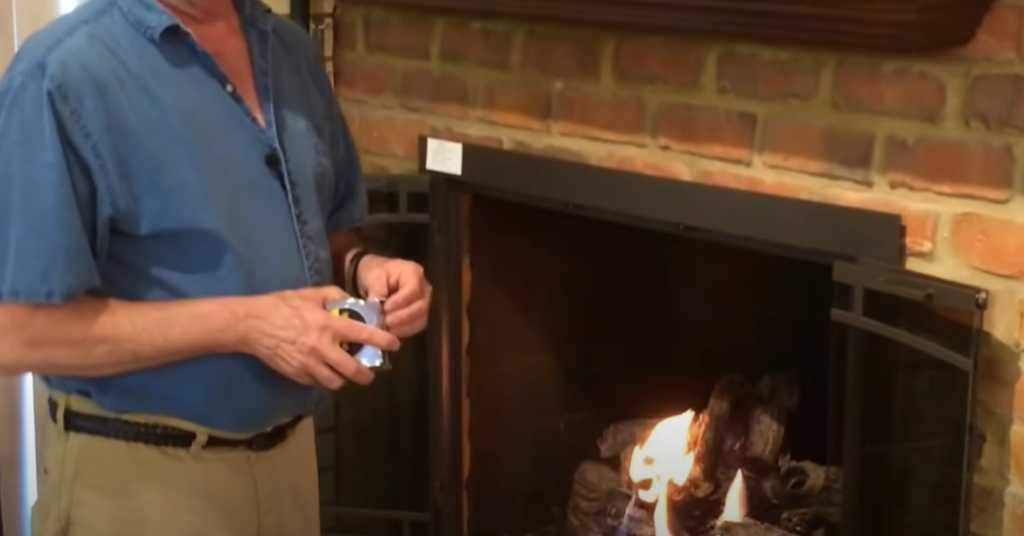
What Are The Risks Of Leaving A Gas Fireplace On For Too Long?
When it comes to the safety of leaving a gas fireplace on for long periods of time, there are several potential risks to be aware of.
First and foremost is the possibility of carbon monoxide poisoning from an improperly ventilated gas fireplace. Gas fireplaces should always be vented outdoors in order to prevent toxic gasses from entering your home. If you choose to leave your gas fireplace running for long periods of time, make sure it is properly installed and vented in accordance with local codes. Additionally, check regularly that all connections are securely fastened and free from leaks.
Finally, leaving a gas fireplace running for an extended period of time can lead to an excessive buildup of moisture in the air, which can cause condensation and eventual rot or mold growth on nearby surfaces. If you are concerned about this risk, there are models available with built-in humidifiers or dehumidifiers that can help reduce the chance of damage from excess moisture. [2]
Can Leaving On a Gas Fireplace Cause a Fire?
The short answer to this question is no, leaving a gas fireplace on for an extended period of time will not cause a fire. However, there are other risks involved with running your gas fireplace for too long and it’s important to understand these.
While a typical gas fireplace should have safety features built in that detect problems such as overheating or low oxygen levels, overuse can still lead to issues. Extended use can cause wear and tear on the components and result in cracks or breakages that could lead to leaks. Additionally, if you leave your gas fireplace burning for too long without proper ventilation, it can lead to dangerous buildup of carbon monoxide in your home which can be deadly.
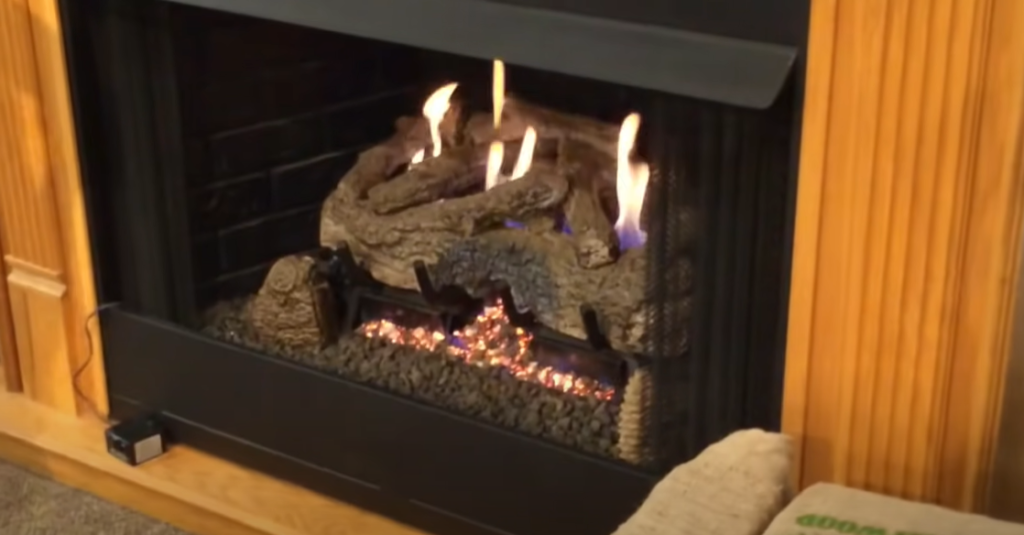
Gas Fireplace Safety Measures
When it comes to running a gas fireplace, safety is of the utmost importance. Before you decide how long you can run your gas fireplace, there are some essential safety measures that must be taken.
First and foremost, make sure any combustible materials such as furniture or curtains etc., are kept away from the fire at all times. Additionally, install a smoke detector near the fireplace in case of any issues with ventilation. Furthermore, place a carbon monoxide detector near the fireplace as well for extra precaution against injury. Also ensure there is adequate ventilation in the room by keeping windows open if necessary. Finally, familiarize yourself with the manufacturer’s instructions for operating your gas fireplace safely and correctly before attempting to use it for extended periods of time. [3]
How To Make A Gas Fireplace Safer
When running a gas fireplace there are certain safety precautions you must take to ensure its safe operation.
Here are a few tips for making sure your gas fireplace is operating safely:
- Inspect the firebox regularly. Check for signs of cracking or damage around the firebox walls which can lead to leaks or fires. You should also inspect venting systems and chimneys frequently and make sure they’re clear of debris or blockages that could lead to build-up of dangerous gasses.
- Make sure the gas supply is shut off when the unit is not in use. This can help prevent any unnecessary or dangerous buildup of gas, and it’s best to do it at least once a week to be safe.
- Monitor the flame while your fireplace is running. If you notice it’s unusually large or orange, this could indicate that there’s too much gas being supplied or that something else isn’t right – so immediately shut off the fuel source and call a certified technician for repair or inspection.
- Install carbon monoxide detectors near your fireplace – especially if you have an older model without proper venting systems. Carbon monoxide poisoning can occur if too much of the gas accumulates in your home, so it’s important to have a detector in place to alert you if this happens.
- Have your fireplace inspected by a certified technician at least once a year. This will help ensure that there are no problems and that the unit is working properly. They can also answer any questions or concerns you may have about how long you can safely keep your gas fireplace running each day.
Alternative To Gas Fireplaces
When considering how long you can run a gas fireplace, it’s important to explore your alternatives. If you’ve been researching fireplaces and don’t like the idea of using gas, there are several other options available.
Electric fireplaces are relatively easy to install and require very little maintenance. They offer the same ambiance as traditional wood-burning fireplaces but with less energy consumption and fewer pollutants. Electric models come in a variety of styles, so you can choose one that best fits your home decor and lifestyle.
When it comes to convenience and energy savings, wood-burning stoves are hard to beat. These stoves provide a classic look that is warm and inviting when burning. Some models come with a blower that circulates the warmed air throughout your home for even distribution of heat. However, these systems require frequent cleaning and monitoring of the firebox to maintain optimal performance. [4]
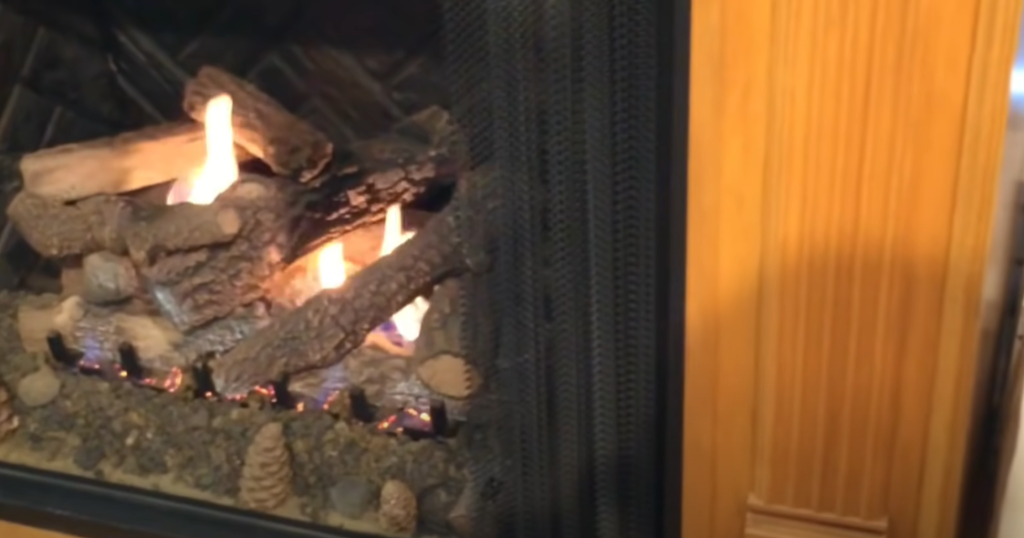
FAQ
Can I run a gas fireplace all night?
The answer to this question depends on the type of gas fireplace you have. For vented fireplaces, it’s generally safe to run them all night if they are properly ventilated. Make sure you keep an eye on the flame and make sure it doesn’t go out during operation. However, for vent-free and direct-vent fireplaces, we don’t recommend running them for more than a few hours at a time due to potential safety concerns.
How long can I run a direct vent gas fireplace?
Direct vent gas fireplaces are designed to run continuously for long periods of time. Depending on the size and type of your unit, you can expect to get anywhere from six to eighteen hours of continuous operation out of a single tank of propane or natural gas. When running a direct vent gas fireplace, it’s important to keep an eye on the flame and never let the fire burn too low.
Can you leave the gas fireplace pilot on overnight?
The short answer to this question is no. While many gas fireplaces are equipped with a standing pilot light that can be left on, it is not recommended to do so. The risk of a hazardous buildup of carbon monoxide or other dangerous gasses increases significantly if the pilot light stays on overnight or for an extended period of time without proper ventilation and airflow. Additionally, leaving the pilot light running continuously increases the amount of energy your fireplace uses and could end up costing you more money in energy bills each month.
Can you run a gas fireplace 24 hours a day?
The answer depends on the type of gas fireplace you have, as well as other factors such as the size of the room it is in and any safety regulations in your area. In general, most experts recommend running a gas fireplace for no more than 8 hours at a time, or 24 hours total per day. That said, there are some circumstances where you may be able to safely run it for longer periods of time.
Can you overuse a gas fireplace?
When using a gas fireplace, it’s important to keep in mind that you can overuse it. This is because the components of the fireplace – including the burner and exhaust system – can become damaged or clogged if run for too long. As such, there is no specific amount of time that you should let your gas fireplace operate for in one go.
Is it cheaper to run a gas fireplace or HVAC?
The answer to this question depends upon the cost of your fuel and the efficiency of your system. In general, a more efficient gas fireplace will be cheaper to run than an inefficient HVAC unit. The savings in energy costs over time can quickly offset any initial higher installation costs associated with installing a gas fireplace. Additionally, if you are using natural gas, the cost savings will be even greater.
Can I sleep with a gas heater overnight?
The safety of leaving a gas fireplace running overnight depends on the model of your gas fireplace. Some models can safely be left burning for long periods, while others must be turned off after specific intervals or when oxygen levels in the room have been depleted. It’s important to check with your manufacturer before attempting to leave the heater running overnight.
In addition to checking with your manufacturer, it’s also important to make sure the area around the fireplace is well ventilated and that you regularly monitor oxygen levels in the room. If oxygen levels drop below 19%, it’s important to turn off your gas fireplace immediately.
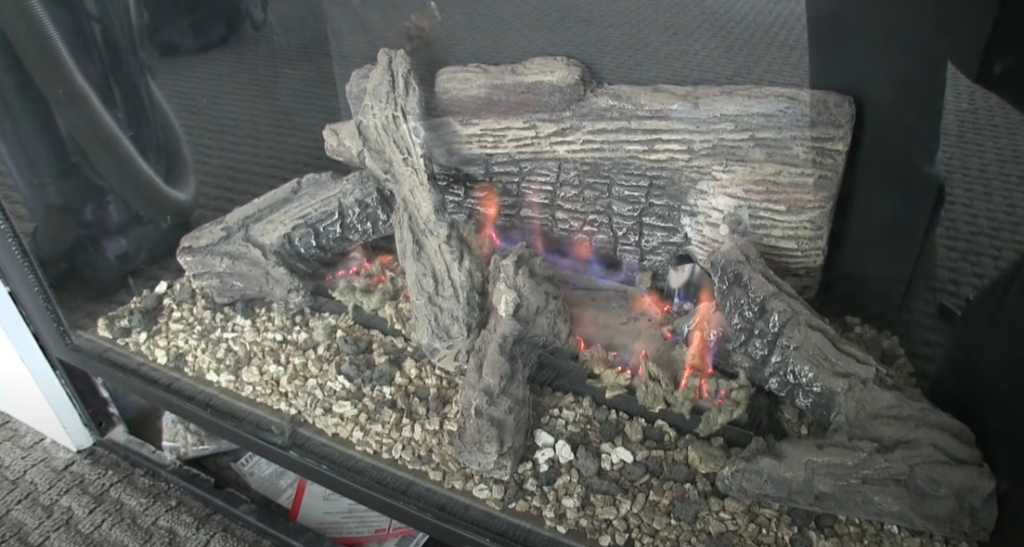
Do gas fireplaces throw off heat?
Yes, gas fireplaces provide efficient and consistent heat. Gas fireplaces use natural gas or propane to produce a flame that can then be used to provide warmth during the winter months. They are also more energy-efficient than traditional wood-burning fireplaces because they don’t require additional sources of fuel like logs or kindling.
Should you turn off the gas fireplace when not in use?
Running a gas fireplace for long periods of time is not recommended, as it can cause the unit to overheat and potentially start a fire. However, you should still turn off your gas fireplace when it is not in use. This will help ensure that the pilot light does not stay lit for too long and also save energy by preventing any unnecessary gas from being used.
Useful Video: Gas Fireplaces: Cost to Run
Conclusion
By now, you have a good idea of how long you can run a gas fireplace safely and efficiently. When it comes to running your gas fireplace for long periods of time, there is always the risk of carbon monoxide poisoning, damage to your gas lines, and other safety risks that you need to be aware of.
To ensure that your gas fireplace is running safely, purchase a carbon monoxide detector and make sure it is installed in the same room as the fireplace. In addition, if you plan on running your gas fireplace for long periods of time, contact a professional technician to make sure all of the components are in proper working condition.
References:
- https://fireplacetown.com/how-many-hours-can-you-run-a-gas-fireplace
- https://www.heatwhiz.com/how-long-to-leave-gas-fireplace-on/
- https://www.pickhvac.com/fireplace/how-long-can-you-run-gas-fireplace/
- https://seniorsafetyadvice.com/how-long-can-you-leave-a-gas-fireplace-on/




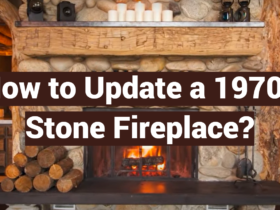
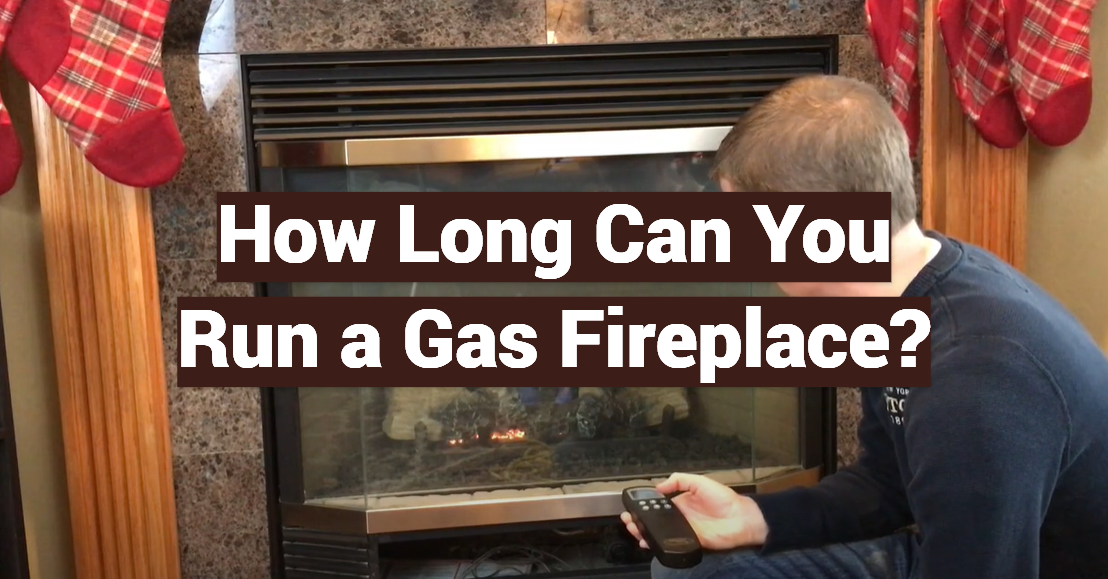

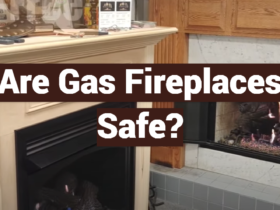

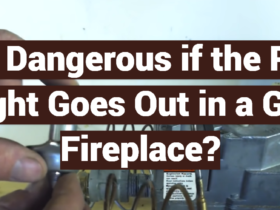
Leave a Review